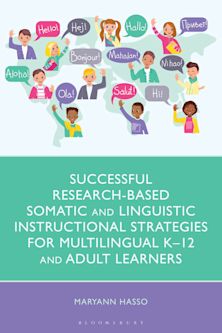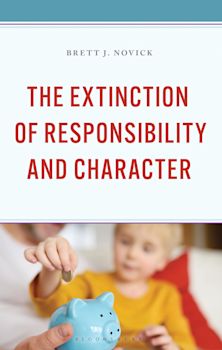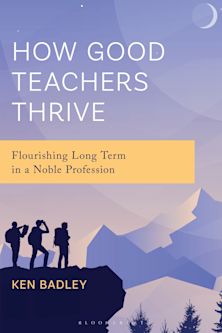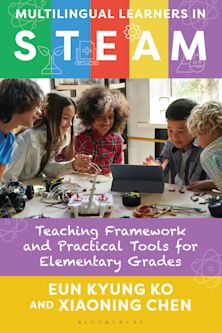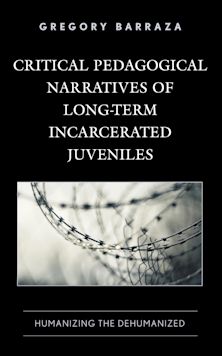- Home
- ACADEMIC
- Education
- Classroom Practice
- Embracing Risk in Urban Education
Embracing Risk in Urban Education
Curiosity, Creativity, and Courage in the Era of "No Excuses" and Relay Race Reform
Embracing Risk in Urban Education
Curiosity, Creativity, and Courage in the Era of "No Excuses" and Relay Race Reform
This product is usually dispatched within 1 week
- Delivery and returns info
-
Free CA delivery on orders $40 or over
You must sign in to add this item to your wishlist. Please sign in or create an account
Description
At a time when American urban public education is under broad attack, and in which America is perceived as a nationat risk that is losing the race to the top, educators and politicians from across the spectrum are promoting increased emphasis on standardized testing, business models of school reform, zero tolerance, no excuses, promoting cultural assimilation, and building a standardized curriculum. Ginsberg argues that in the effort to reduce the achievement gap and mitigate the pejorative label of "at-risk," we are in danger of eliminating risk from education entirely. This is especially the case in urban schools with large numbers of poor and minority students. Ginsberg explores alternative approaches to student achievement at four dynamic Philadelphia public schools. This book provides a grounded, close look at alternative and innovative pedagogies which embrace risk through an emphasis on critical inquiry, cultural diversity, global awareness, project-based learning, collaboration, community partnerships, and student activism. The result? Schools which can nurture a new generation of students who are not only smart and literate but can think help preserve American Democracy while furthering the quest for peace, unity, equity, and social justice.
Table of Contents
Introduction: Why Embrace Risk in Education?
Chapter One: The New Three R’s in Public Education: Relay Race Reform
Unpacking the Language of 21st Century School Reform
Chapter Two: A Mission to Question: CriticalInquiry, Creativity and Risk
The Science Leadership Academy (SLA)
Chapter Three: Courageous Conversations: Teaching, Cultural Identity and Risk
The Folk Arts Cultural Treasures School (FACTS)
Chapter Four: When Superman is Delayed: Social Justice, Student Activism, and Risk
Parkway NW School for Peace and Social Justice
Chapter Five: Unlocking the Schoolyard Gate: Geography, Community and Risk
The Wissahickon Charter School
Conclusion
Appendix A: Contemporary Educators Respond: “How would you define embracing risk in urban education?”
Bibliography
Index
Product details
| Published | Jan 26 2012 |
|---|---|
| Format | Hardback |
| Edition | 1st |
| Extent | 144 |
| ISBN | 9781607099482 |
| Imprint | R&L Education |
| Dimensions | 239 x 161 mm |
| Publisher | Bloomsbury Publishing |
About the contributors
Reviews
-
Public schools in the US have long operated as sorting machines channeling students to serve the needs of capital and so-called national interests. Ginsberg deconstructs the rhetoric of contemporary test-driven school reform, with a specific emphasis on the concept of 'at risk.' The premise is statistics that identify entire cultures as 'at risk' are powerful stories not simply of low expectations, cultural deprivations, and individual laziness, but of political capital, misused power, and unjustly distributed resources. Ginsberg provides a powerful analysis of how the policies that supposedly promote meritocracy, personal responsibility, and individual achievement also contain strong components of separating, sorting, marginalizing, and punishing students, particularly those from communities considered "at risk" and who refuse to conform to the status quo. Unlike many ideologically similar critics of public schools, Ginsberg presents a hopeful message through case studies of four urban schools that illustrate more meaningful and sustainable ways for students to learn. These schools embrace risk in that they are unafraid of challenging the status quo of teaching and learning by cultivating spaces where students can question how and why certain knowledge is validated, marginalized, or dismissed. Summing Up: Essential.
Choice Reviews
-
Too many policy makers and commentators decry the failure of urban schools without recognizing that the problems such schools face are a byproduct of our society's neglect and indifference. Alice Ginsberg has provided us with a new way in which to understand the challenges confronting urban schools and clear and refreshing perspective on how they might be addressed. This is a timely and insightful book and it should read by anyone who truly seeks to make a difference in urban education.
Pedro A. Noguera Ph.D, distinguished professor of education UCLA Graduate School of Education & Information Studies
-
For all of us, the most powerful learning experiences are the ones that push us outside of our comfort zones, and challenge us in ways that create the possibility that we might discover something new about ourselves, each others, and the larger world. As Alice Ginsberg understands, meaningful learning is risky, difficult, and sometimes painful. But it’s also sometimes the moment when we first discover what we’re capable of, and why we can never go back to the way we were.
Dr. Sam Chaltain, Director of the Forum for Education and Democracy and founding director of the Five Freedoms Project
-
Alice Ginsberg brings fresh and compelling perspective to the challenges educators face in urban districts, schools and classrooms and how education policy makers, teachers, administrators and stakeholders can effectively address them by creating a new culture for adults and students that…embraces risk to ensure that all students learn and achieve at high levels.
Dr. Thomas Payzant, Professor, Harvard Graduate School of Education, former superintendent of the Boston Public Schools, and assistant secretary for Elementary and Secondary Education with the United States Department of Education
-
In my mind the risk for students in urban schools is that they are the victims of a cornucopia of policies designed to ensure that their schools are labeled as low-performing and therefore in need of state intervention, making room for the hustlers, profiteers and do-gooders from the beyond to 'save' them. Alice Ginsberg reminds us that there are schools fighting against this current, and doing so in ways that demonstrate that schools which start from the premise that city kids can learn and want to learn can accomplish remarkable things.
James H. (Torch) Lytle, Practice Professor, Graduate School of Education, University of Pennsylvania
-
Urban schools can be exciting and successful environments for our most underserved students. Ginsberg describes effective strategies that must be integrated into our schools; these strategies are not about testing, but about believing in the abilities of all students and mentoring them to address complex social issues that they as adults will be responsible for in the future. Our national risk is that so many students are not being engaged in schools; numerous young people feel schools are not relevant or responsive to their lives. School curriculum has become a response to corporate requests rather than to focus on the developmental and academic needs of our students. Children are the most important natural and national resources of our nation. Ginsberg challenges the narrow and limited views of the potentials and abilities of our urban children and their families.
Valerie Ooka Pang, Professor of Teacher Education, San Diego State University












